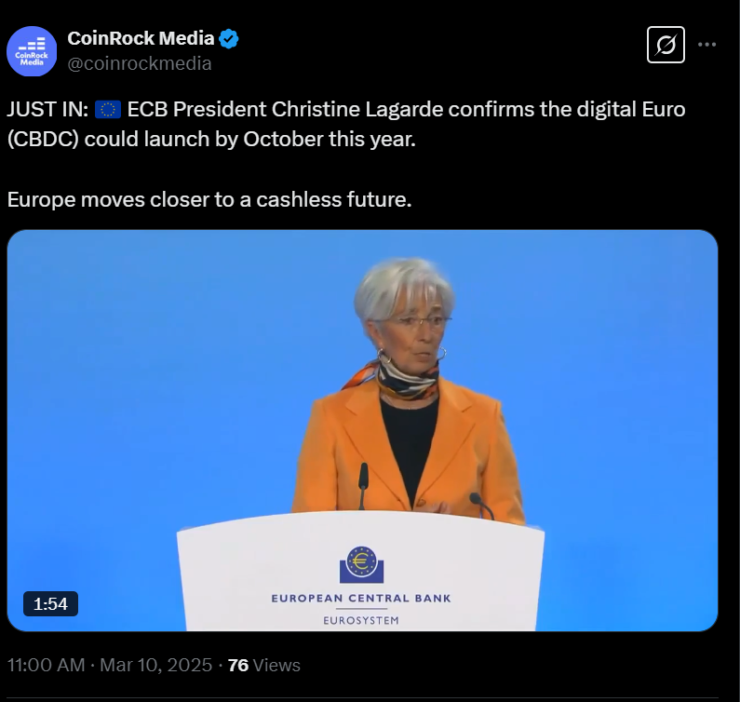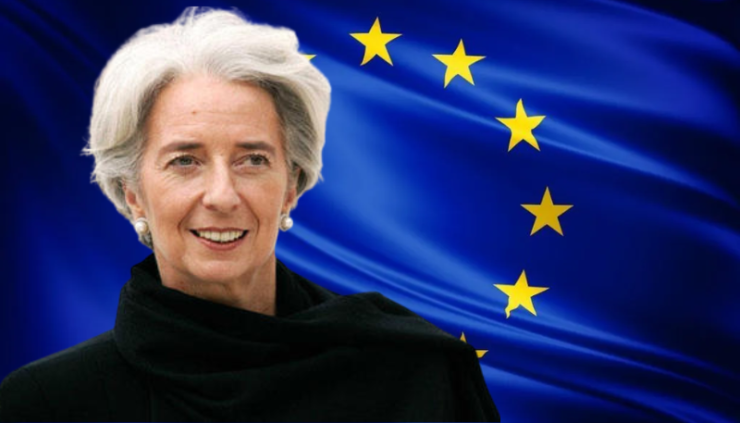The European Central Bank (ECB) is pushing ahead with plans for a digital euro, aiming to complete preparations by October 2025. However, ECB President Christine Lagarde has made it clear the project cannot move forward without legislative approval.
While the ECB is preparing to finalize the technical and regulatory groundwork, the actual launch remains uncertain, with analysts predicting the digital euro may not go live until 2028.
Speaking on the project’s status, Lagarde emphasized that stakeholder cooperation is crucial.
“The deadline for us is going to be October 2025, and we are getting ready for that deadline. But we will not be able to move unless the stakeholders the Commission, Council, and Parliament complete the legislative process,” she stated.

The preparation phase, which began in November 2023, is focused on refining the technical design, regulatory framework, and stakeholder feedback.
However, the final decision will rest with the ECB’s Governing Council, and Deutsche Bundesbank analysts predict the rollout could take until 2028.
How Will the Digital Euro Work?
The digital euro will include both retail and wholesale versions, each designed to meet different financial needs:
- Retail Digital Euro: Available to the public with free basic transactions, offline functionality, and strong privacy protections. The ECB has assured that transactions will not be monitored.
- Wholesale Digital Euro: Designed for financial institutions, using blockchain technology to enable faster interbank settlements and cross-border payments.
While the retail version is meant to coexist with traditional cash, some commercial banks have raised concerns that it could reduce bank deposits, leading to discussions on holding limits for individuals.
One of the biggest concerns surrounding the digital euro is privacy. Critics fear that centralized digital currencies could lead to government surveillance of transactions.
To counter these concerns, the ECB has promised strict privacy protections and is experimenting with blockchain technology.
Tests by the European Investment Bank (EIB) and Banque de France have already explored the use of Ethereum for CBDC transactions, though the ECB is also evaluating alternative blockchain platforms.
Competing with China and U.S. Stablecoins
The ECB’s push for a digital euro comes amid growing competition from:
- China’s Digital Yuan: Already in advanced trials, China’s CBDC is actively being used for domestic transactions, giving it a first-mover advantage.
- U.S. Stablecoin Growth: Dollar-backed stablecoins like USDT and USDC have become dominant in global crypto markets, raising concerns about the euro’s long-term competitiveness.
Lagarde has positioned the digital euro as a defensive move to ensure the euro remains relevant in an increasingly digital financial system.
Will the Digital Euro Launch on Time?
Despite the ECB’s October 2025 deadline, the actual launch of the digital euro remains uncertain. Legislative approvals, regulatory hurdles, and public acceptance will all play a role in determining whether Europe can meet its digital currency ambitions.
For now, the ECB is moving full speed ahead, but real-world implementation may still be years away. The big question remains: Will the digital euro become a reality, or will delays push Europe further behind in the race for digital currency dominance?





